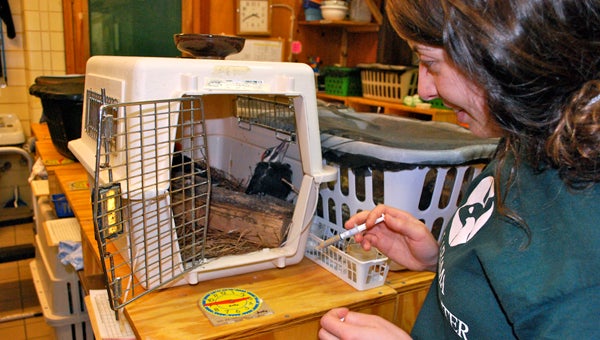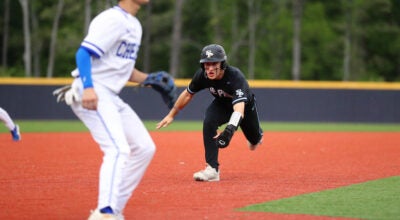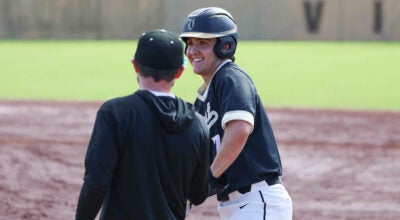Baby birds are back: Baby bird season is in full swing at the AWC
Published 9:34 am Thursday, May 14, 2015

Liana Dinunzio feeds for two baby pileated woodpeckers, just a couple of the more than 160 baby birds the AWC is caring for right now. (Reporter Photo / Molly Davidson)
By MOLLY DAVIDSON / Staff Writer
PELHAM—The Alabama Wildlife Center is bustling with activity and filled with baby birds, a sure sign that baby bird season is in full swing.
The months from April to October are the busiest for the AWC. During this time, known as baby bird season, the center receives and treats hundreds of abandoned, orphaned or injured baby birds.
“There are about 160 babies right now that we’re taking care of,” AWC Executive Director Doug Adair said. “Last year, we treated over 1,000 babies… we’re on this year to have even more than last year.”
Although baby bird season had a slow start this year, intake has rapidly picked up. Currently, the AWC is caring for a variety of babies, from raptors to woodpeckers to songbirds.
The primary goal is to re-nest the babies, returning them to their parents. So far this year, the AWC has had success re-nesting a number of the babies.
In situations where the babies have been orphaned, re-nesting is not possible. In these cases the AWC will feed, care for and raise the babies until they are able to fend for themselves, then release them back into the wild.
“I would say we can roll our babies through in one to two months,” AWC Director of Education and Outreach Scotty Jackson said. “Nutrition is really key for good bone and muscle development. A great house and a good place to stretch their wings are really important too.”
Raising baby birds does not come without challenges. Some species, especially raptors, are very “susceptible to human imprintation,” Adair explained.
“We’re very careful that the baby raptors do not associate food with humans,” Adair said. “If they do become imprinted, they’re not releasable.”
Volunteers take special precautions to avoid imprinting baby raptors, such as limiting contact and wearing camouflage ghillie suits when feeding them.
The AWC treats thousands of injured birds every year. If a baby bird, or any injured bird, is found, Adair encouraged people to call the AWC help line, 663-7930 extension 2.
“The best thing you can do is give us a call,” Adair said. “We’ll walk through the particular specifics about that situation and get the best care for that bird.”









